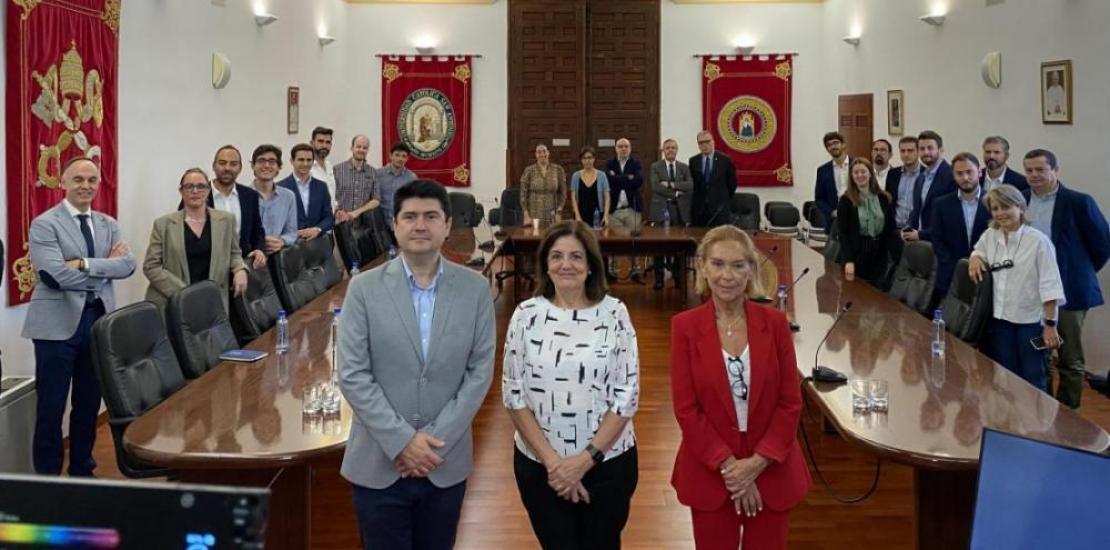UCAM joins Celera to promote scientific entrepreneurship in Spain
Both institutions will develop initiatives in this field
For a good scientific idea to reach society, researchers must have the tools, resources and an enabling environment to take the leap. This need has led to Celera, which now joins UCAM as a strategic partner, with the aim of developing initiatives that promote scientific entrepreneurship in Spain. Other nationally renowned foundations such as Rafael del Pino (co-founder), Francisco Soria Melguizo and the Banco Sabadell Foundation are already part of this 'talent accelerator' .
María Dolores García, UCAM president, and Javier García, founder and president of Celera, signed the incorporation agreement this morning, accompanied by Josefina García, UCAM rector; Carlos Caballero, director of the UCAM HiTech accelerator; Alejandro Rodríguez, director of this initiative, and Estrella Núñez, UCAM vice-rector of Research; as well as other members of the academic community and a prominent representation of 'celerados' who are part of the programme. All the initiatives will be developed through UCAM HiTech, the innovation and business acceleration hub of the Universidad Católica de Murcia, which belongs to the Incyde Foundation's High Technology Incubators Network.
Retaining scientific talent
In the ten years Celera has been active, 100 young people have benefited from this totally free programme, which every year selects 10. These lucky few are given resources, which has led to the foundation of more than 15 companies valued at more than 500 million euros. ‘We have not done this by choosing the best scientific entrepreneurs in the country -even though they are- but those who are worth it’, said Javier García, for whom the future of talent retention ‘must obviously be to improve the conditions of our young researchers, offering them attractive conditions, but also to create these communities; places where they can develop their projects in Spain’.
María Dolores García emphasised that UCAM has been committed to top-level applied research from the outset, ‘which is now complemented by our incorporation into Celera’ to help science leave the laboratory and turn into business projects that have a real impact on society. In this regard, Carlos Caballero detailed some of the initiatives that will be launched soon, such as a community of scientific entrepreneurship ‘which does not exist in Spain, where all these types of companies can meet to share concerns and obtain training’; in addition to the creation of a seedbed for science-based companies and a Think Tank to reflect on what transfer model the country needs.




